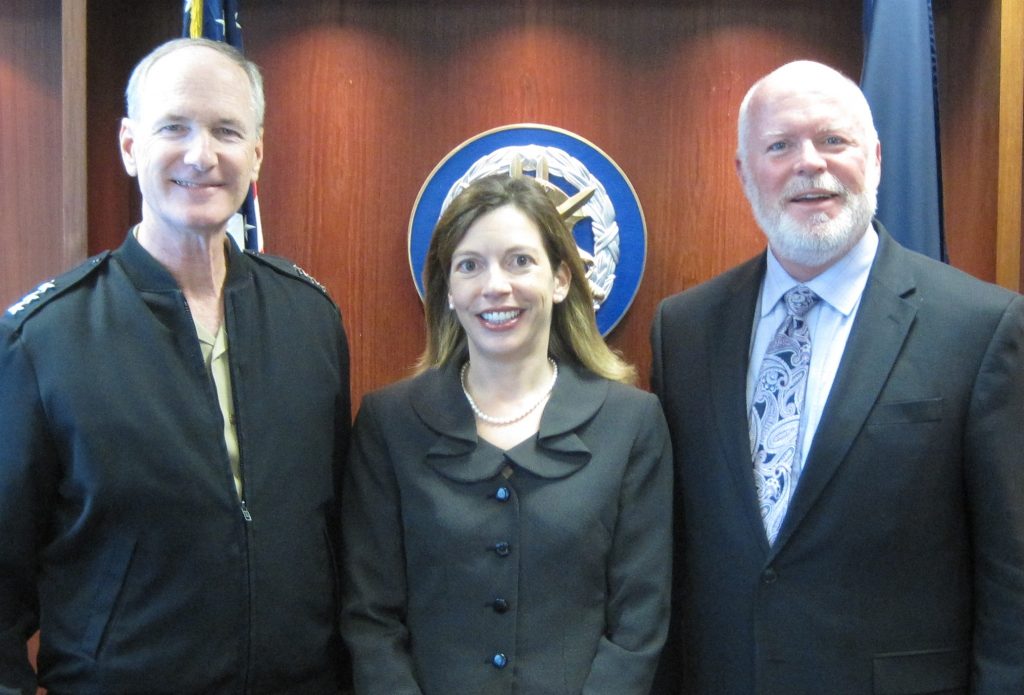
From Evelyn Farkas, U.S. European Command: “Why should the public and private sectors collaborate today?”
The answer? The complex challenges that we face around the world today often require skills and approaches beyond traditional military capabilities. Collaboration allows us to meet these challenges utilizing specific expertise found in the private sector. The private sector can provide agility, swift innovation, and a unique resource set.
Together, government and private entities can reduce shared risks, minimize costs, and address mutual threats like terrorism, organized crime, cyber attacks, and climate change. The government gains access to the private sector’s expertise and resources, and private sector entities benefit from the information sharing involved in collaboration and the legitimacy gained from meeting complex challenges to provide for the greater good. . . .
NATO adopted a comprehensive approach that recognized the need to build partnerships with non-military entities both inside and outside the government. With this in mind, in 2008, NATO launched the Building Integrity Initiative, which works with private NGOs like Transparency International, to reduce corruption in defense establishments in Europe and Afghanistan. . . .
First, is the issue of trust. Neither sector likes to broadly share information about vulnerabilities. Corporations worry that it could lead to the public revelation of weaknesses and of sensitive intellectual property. The government is cautious about disclosing national security vulnerabilities to private entities that have international ownership or global interests and about safeguarding the privacy of U.S. citizens. And finally, there is the problem of how to institutionalize this collaboration. Because the responsibility for advancing public-private collaboration is so decentralized, optimization and coordination of efforts across the government has proven to be difficult.
Evelyn N. Farkas, Ph.D., Senior Advisor for Public-Private Partnership to the Supreme Allied Commander (SACEUR) and Commander, U.S. European Command. (photo: EUCOM)
Image: eucom%208%2011%2011%20Gallagher%20Evelyn%20Farkas.jpg
